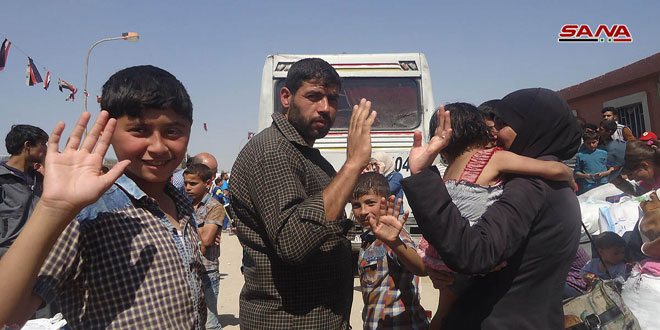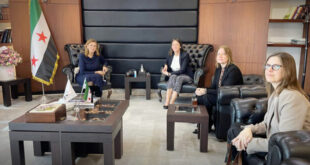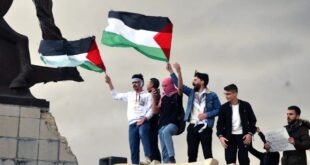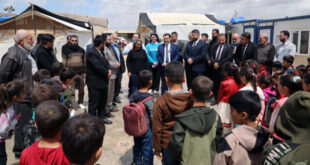Herjalleh/Damascus countryside, SANA-Rasha Hashem was busy putting her luggage in a small bag as she was preparing to leave an apartment she shared with relatives for over two months in Herjalleh makeshift center in Damascus southern countryside.
Rasha is one of scores of people who have returned to Saqba; her home town in eastern Ghouta. Doors are left open for other families willing to return to Ghouta’s liberated towns amid an accelerating pace of reinstated services.
Midway between her former temporary residential house and the center’s entrance, Rasha tells SANA’s correspondent as her pace quickens in an attempt to catch up with her husband who arrived before her at the bus: “We have waited a whole long day after it became certain that we can go back to Saqba. We will start over.”
Rasha joined her husband and four children on the bus where several buses assembled at the center’s entrance. Her husband stood with bags full of their stuff next to him. “I miss Saqba terribly. I miss my family and Ghouta’s farms especially that these are the apricot days.”
“I cannot contain myself for joy,” the father of four says, obviously at a loss for words. He then went on to explain that he is determined to get back to his former profession in the furniture industry, a common profession in Saqba town.
Locals have fled terrorist acts in Eastern Ghouta in search for safety after the Syrian army established four safe corridors in Jisrin, Hammouriyeh, al-Wafideen camp and Harasta during a military campaign against terrorists last March. 143 thousand civilians reached safety and were accommodated in makeshift residential centers.
Mahmoud Sadeq, father of six, seemed fatigued as he struggled to pull up bag of food to the bus which was about to set off. “I was reduced to tears when they told me I can go back to my house. Tears of joy.”
Manal
 Syrian Arab News Agency S A N A
Syrian Arab News Agency S A N A




